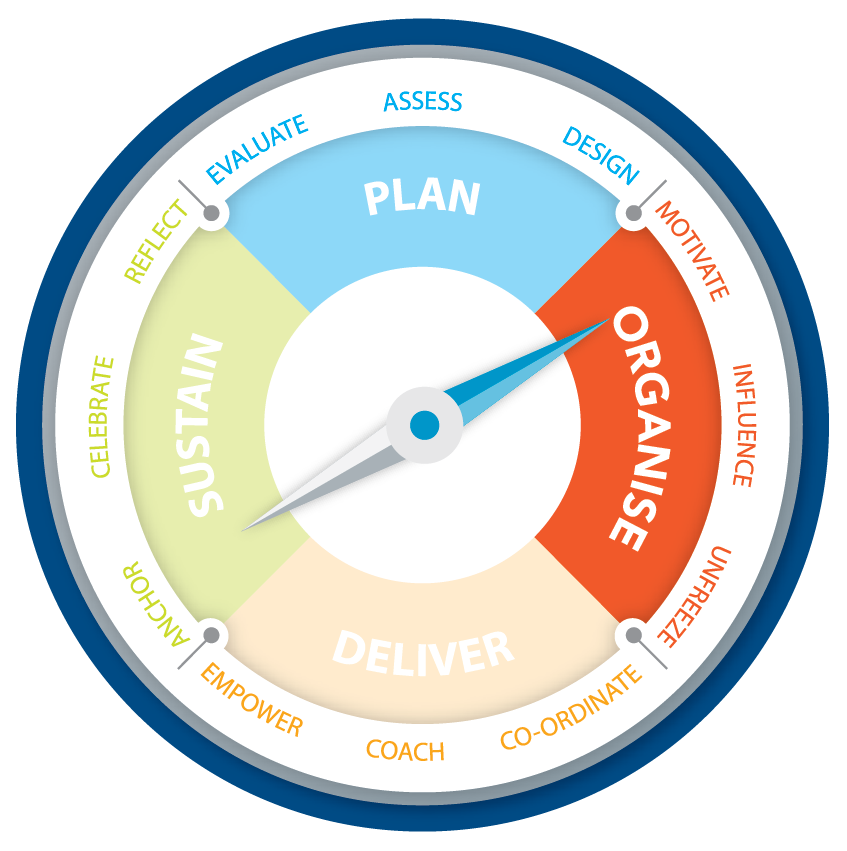
You would recognise typical workplace motivators in these core values:
As change leaders, we can have the greatest impact by working with our team member's values. It's more difficult than working to correct or manage individual behaviours,
but it has a much greater impact for the effort and time taken. Values influence workplace performance (that is, the results that a person achieves). In the diagram below
you can see the relationships between results and values. A team member’s core values will often explain their individual behaviours in the workplace, as well as their underlying
perceptions and beliefs. A team member’s state of mind controls their behaviours and the results that they achieve. Engaging your team through their core values is often a
faster way to a successful change. Working with values has a huge multiplier effect, affecting hundreds, if not thousands of behaviours.

When preparing your people for change, assessing their: state of mind, their core values, and the beliefs that influence it, will help you to influence their behaviours. You will also be in a better position to communicate, motivate and coach team members more effectively. Core values differ from the organisational values that help guide us in determining what is important in our business dealings.
As a leader, there is a far greater impact if you are able to visibly lead from your values, displaying those values that you believe in and that represent your character.
- Recognition for achievement (bonus or award certificates)
- Provision of training through interest in the job or industry
- Extra professional responsibility (development opportunities)
- Being part of a team with the associated friendships and camaraderie
- Promotion with extra responsibility (additional authority and status)
- Career advancement (personal mastery)
- Equal compliance with the rules or procedures (fairness and loyalty)
- Social activities with colleagues after work

When preparing your people for change, assessing their: state of mind, their core values, and the beliefs that influence it, will help you to influence their behaviours. You will also be in a better position to communicate, motivate and coach team members more effectively. Core values differ from the organisational values that help guide us in determining what is important in our business dealings.
As a leader, there is a far greater impact if you are able to visibly lead from your values, displaying those values that you believe in and that represent your character.
|
|
Living your values is one of the most powerful tools to lead, influence and motivate others. A worthwhile reference is:
Harry M. Jansen Kraemer Jr., From Values to Action: The Four Principles of Values-Based Leadership, Jossey-Bass, April 2011.
|
|
Understanding your team member’s personal core values will give you an insight into what makes them tick. Set goals based on the
values of your team members.
|
Resources:
● Context and Content Values (98kB download)
● Core Motivational Values Chart (47kB download)
● Empathy in Change Leaders (118kB download)
● Context and Content Values (98kB download)
● Core Motivational Values Chart (47kB download)
● Empathy in Change Leaders (118kB download)
| ©1999 - 2020 Sandar Management Services Pty Ltd |
